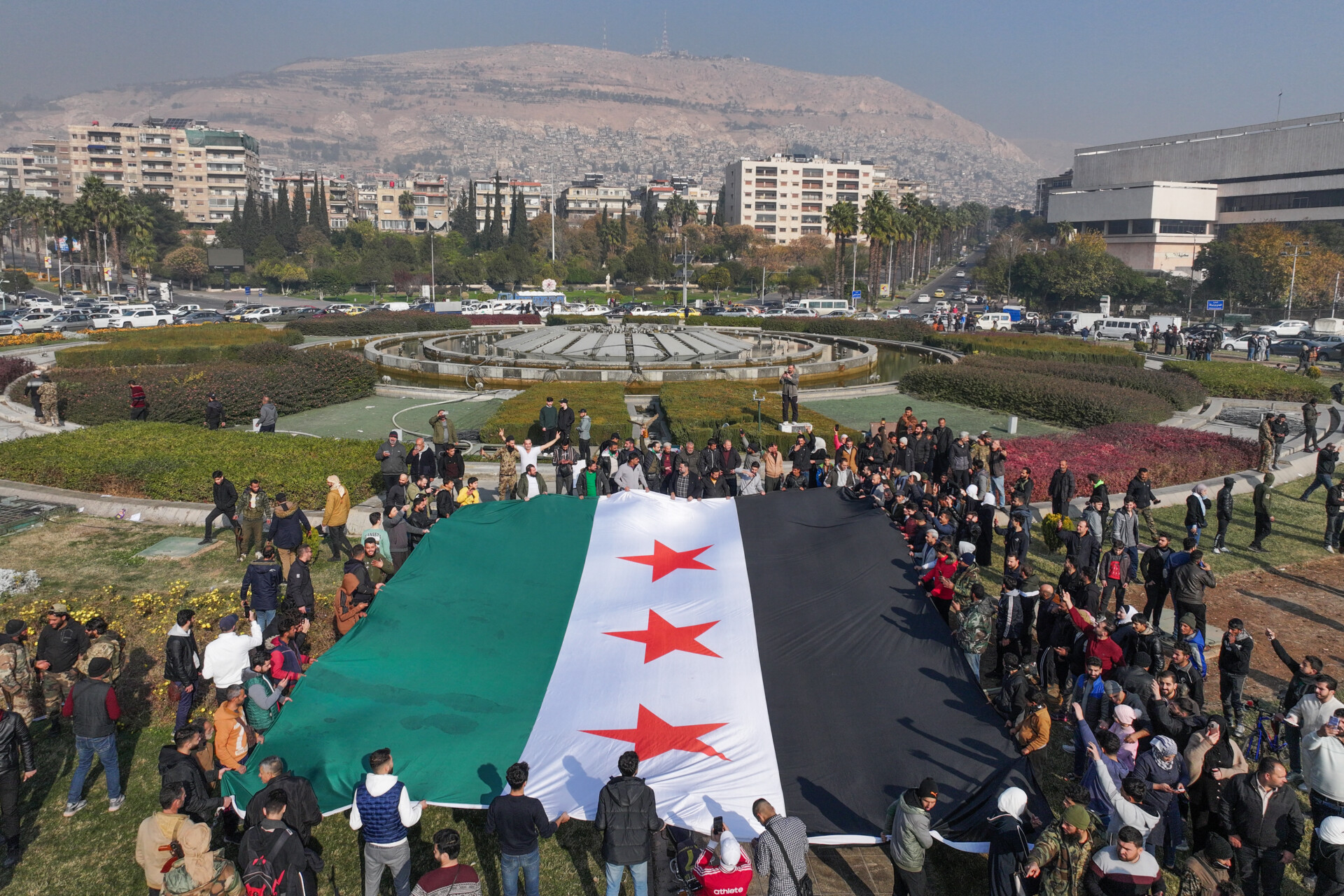Dear New Lines Readers,
It has been a stunning fortnight as we’ve witnessed what many long thought impossible: the fall of the house of Assad, and the dawn of a free Syria. For the team at New Lines it has been a remarkable, even emotional, development; although we are proudly a “local magazine for the world,” the Middle East was our foundation, and our incisive analysis and in-depth coverage of the region are how many of you came to know us.
This past week we’ve published an array of must-read essays, the majority of which were written by Syrian journalists. It is one of the cornerstones of our ethos at New Lines: local voices matter.
There has never been a more urgent time for deep, thoughtful and humane reporting on Syria, and we think New Lines is the best place on the internet to find such stories. If you value what we do, please consider becoming a New Lines supporting member. You can subscribe for free at the Basic level to read all our coverage online; become a Print Plus subscriber to receive our beautiful quarterly magazine delivered to your door; or make a one-time donation to New Lines at any amount over $10 to support the work we do here.
We’re highlighting some of our best Syria coverage from this week and our archives in the links below. We hope you’ll give these pieces a read, share them, and consider subscribing. We couldn’t do it without great readers like you.
THE SYRIA EDIT
Start here: There’s nothing that captures the emotions of this moment better than this beautiful, gut-wrenching tribute to the Syrian people, written by our Middle East editor, Kareem Shaheen.
Then, read this deep dive into how Hayat Tahrir al-Sham (HTS) caught Bashar al-Assad — and the world — off guard as it took Aleppo, co-authored by our editor-in-chief, Hassan Hassan. (For more on the mood in Syria’s second city, we have a piece on how Aleppo’s large Christian community is viewing the takeover, and what it has been like for one writer in exile to return to her hometown.) And do take a moment to read this powerful first-person reflection from a Latakian journalist on what it means to report on a totalitarian regime like Assad’s, and the balance of hope and fear he has endured to write with integrity.
After you read our dispatch from Sednaya prison, where families are desperately seeking news of loved ones, try these two essays from dissidents who survived time in the regime’s cells which begin to shed light on what tens of thousands of Syrians have suffered. (As it turns out, many of the torture methods used in those prisons were taught to them by a Nazi fugitive. His story is an incredible one, which you can read here.) After all that, our beautiful piece about how former prisoners use music to heal their souls is a necessary antidote.
We’ve spent years covering the regime’s cruelty with an eye toward accountability, and our 2021 investigation, which includes the wild story of how two researchers catfished a killer into admitting he had participated in a massacre, is well worth revisiting, as is this long read on Russia’s role in boosting a pro-Assad conspiracy and cover-up of a chemical attack. (For two more stories that touch on chemical weapons, read this first-person account from our colleague Rasha Elass about the attack in Ghouta, and this review of writings about how it changed foreign policy.)
Speaking of foreign policy, it is worth revisiting our piece on What the Global War on Terror Really Accomplished, and how it is shaping what will happen next in Syria, along with our piece by the Syrian dissident Yassin al-Haj Saleh on Noam Chomsky’s distorted vision of America, which is a New Lines classic. Wondering what Assad will do in Moscow? Our colleague Amie Ferris-Rotman writes about Putin’s attempts to save face, and his base in Tartus. And perhaps read this as a cautionary tale: Why the US Far Right Loves Bashar al-Assad.
If you’re in the mood to listen to a few podcast episodes, here are three we’d recommend: a fascinating conversation about the assassination of Hassan Nasrallah, perhaps Assad’s most important regional ally, and how it isolated the Syrian autocrat; Hala Gorani’s reflections on her career reporting on the region and on her sense of belonging; and an interview with Syrian-born writer and political analyst Rime Allaf that charts the rise of Assad, the initial hopes Syrians had for him and his crushing cruelty.
Once the initial jubilation wears off, HTS and the Syrian people will have much to tackle to rebuild the country. Two essays by our colleague Lydia Wilson — one on the hunger faced by many in a country renowned for its cuisine, and the other about the struggles Syria’s women have had to face as hundreds of thousands of men were killed or fled — point to an uphill battle ahead. Yet, the spirit of the Syrian people endures, despite the detractors. As the Syrian writer Zaina Erhaim wrote in our pages four years ago: To the world, Syria “is the site of countless tragedies. To me, it is home.”
Sign up to our mailing list to receive our stories in your inbox.



